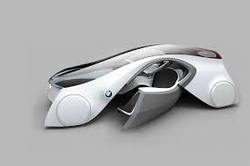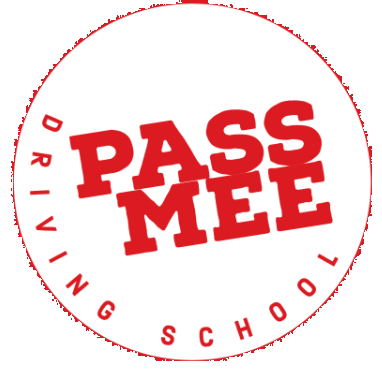What will driving in the future look like and who will be doing it? The future of driving The future of driving
The car industry is constantly bringing us new technological advances in safety, entertainment, usefulness or simply for pure innovation and x-factor.
Most advances are either specifically built for safety or at least have some sort of safety focus to them. Some of the latest could revolutionize not just the automotive industry but human transportation in general. But there are technologies that we have been using in other industries that are slowly finding their way into the car industry, such as simulators. So what's in store for future cars, driving and the way we learn to drive? Based on what is currently being tested and what's on the road today, most of it will help keep us safe, some will give us information like never before and some will let us kick back and just enjoy the ride whilst a computer complete with all round visual and motion sensors drives us. But additionally perhaps our new car could teach us to drive, maybe the car windscreen will double up as a large TV screen that could then become a simulator, perhaps when we purchase a car in the future we will have to drive with all the safety features on, initially! Features like auto park, crash collision, road marking sensors, speed sensors, brake assistance and maybe in the future autopilot. Currently in the transport industry we have been using simulators for years, Pilots for example will undergo hundreds of hours in a flight simulator even before they go up in the air. Bus companies are also using simulators to help train their drivers before they even venture out on the road with an instructor. And in the both the airport and train industry many drivers or pilots do not actually fly the plane or drive the train. Much of the London Underground and the DLR is for example already completely automated. So in the future when we initially learn to drive we may have to undergo initial training using a computer application or simulator. Then the full ability to drive completely computer unaided may be restricted in new cars until we have carried out X number of hours behind the wheel with full assistance mode turned on. And gradually we may be able to turn of many of these driver assistance or safety features. Maybe some people will never turn off these driving aides, maybe car insurance will be reduced if we leave these in car driving assistances turned on. You can already drive with a mobile application on your phone that will assess how good a driver you are using the phones in built motion sensors and GPS to reduce your car insurance. See aviva's driving app, perhaps you could save over a hundred pounds by using it? The future of driving
Here's what driving in the future may look like and who will be doing it:
Autonomous Driving and AI One of the biggest changes envisioned for the future of driving is the rise of autonomous or self-driving vehicles powered by artificial intelligence (AI). According to the search results:
While fully autonomous driving may not become mainstream for consumer use in the very near future, over the next several decades, AI is expected to take over a significant portion of driving tasks. Connected and Electric Vehicles The future of driving also involves increased connectivity and electrification of vehicles:
Taxation and Insurance Models With the shift towards electric and autonomous vehicles, new taxation and insurance models are anticipated:
While human drivers will still be present in the near future, the search results suggest that by 2090, a significant portion of driving tasks could be handled by AI and autonomous systems. The role of human drivers may shift towards monitoring and intervening when needed, as vehicles become increasingly connected, electric, and capable of self-driving. Benefits of Self driving Vehicles
Here are some of the key benefits of self-driving or autonomous vehicles:
1. Enhanced Road Safety - Self-driving vehicles can potentially reduce road accidents and fatalities caused by human error, which accounts for 94% of crashes according to government data. - Their ability to process vast amounts of data from sensors and make split-second decisions based on real-time information could lead to a considerable reduction in accidents. 2. Greater Independence and Accessibility - Full automation offers more personal freedom and self-sufficiency for people with disabilities like the blind, as well as enhanced independence for seniors. - Ride-sharing of self-driving vehicles could provide more affordable mobility options. 3. Saving Money - Automated driving systems could help avoid the costs associated with crashes, including medical bills, lost work time, and vehicle repairs. - Fewer accidents may also reduce insurance costs. 4. Increased Productivity - Self-driving vehicles could allow occupants to recapture time spent driving and pursue more productive or entertaining activities instead. 5. Reduced Traffic Congestion - Coordinated communication between self-driving vehicles can optimize traffic flow, prevent sudden stops, and reduce road congestion. - Fewer accidents and smoother traffic patterns can also contribute to reduced congestion. 6. Environmental Benefits - Self-driving vehicles can optimize routes, reduce idling time, and enhance fuel efficiency through smoother acceleration and braking patterns, leading to reduced fuel consumption and carbon emissions. - The integration of self-driving technology with electric vehicles can further reduce environmental impact. 7. Economic Advantages - While initial costs may be high, self-driving technology could lead to long-term economic benefits, such as reduced strain on emergency services, lower fuel consumption, and new business models like autonomous ride-sharing services. 8. Time Efficiency - Self-driving cars could give commuters back valuable time currently lost behind the wheel, allowing them to engage in other activities and potentially improving work-life balance. There is a huge potential of self-driving vehicles to revolutionize transportation by improving safety, accessibility, productivity, traffic flow, environmental impact, and economic efficiency, while also providing greater independence and time savings for individuals. how will the introduction of self-driving vehicles affect the job market for drivers?
The introduction of self-driving or autonomous vehicles is expected to have a significant impact on the job market for drivers, particularly in occupations where driving is a primary activity. Here are some key points:
1. Job Losses for Motor Vehicle Operators - Motor vehicle operators, such as truck drivers, taxi drivers, and delivery drivers, are among the occupations most likely to be directly affected by autonomous vehicles. - In 2015, there were 3.8 million workers employed as motor vehicle operators in the U.S., whose jobs could potentially be replaced by self-driving technology. - These workers tend to be predominantly male, older, less educated, and lower-paid compared to the typical worker. 2. Potential Job Gains in New Roles - While autonomous vehicles may eliminate some driving jobs, the industry is also creating new job opportunities in areas like software development, testing, safety, strategic account management, and fleet logistics. - Companies are hiring computer scientists, engineers, and other skilled professionals to develop and deploy self-driving technology. - New roles may emerge in traffic control centers to orchestrate and manage fleets of autonomous vehicles in cities. 3. Gradual Transition and Workforce Adaptation - The transition to fully autonomous vehicles is expected to be gradual, allowing time for the workforce to adapt. - Jobs may not disappear all at once, as there will be intermediate steps between no automation and full automation. - The workforce has shown resilience during past technological transitions, and new opportunities may arise as the industry evolves. 4. Potential for Job Transformation - Rather than complete job elimination, some driving roles could potentially transform into new roles related to autonomous vehicle operations and maintenance. - For example, truck drivers could transition to monitoring and managing fleets of self-driving trucks, or taxi drivers could become customer service representatives for autonomous ride-sharing services. 5. Societal Benefits and New Economic Opportunities - While there may be job losses in certain driving occupations, autonomous vehicles are expected to bring societal benefits, such as improved safety, increased productivity, and new economic opportunities in various sectors like media, entertainment, and e-commerce. In summary, while the introduction of self-driving vehicles is likely to disrupt the job market for traditional driving occupations, it is also expected to create new job opportunities in emerging fields related to autonomous vehicle technology, operations, and services. The transition is anticipated to be gradual, allowing time for workforce adaptation and potential job transformation in some driving roles.
0 Comments
Leave a Reply. |
London Driving School BlogLondon Driving School Blog. Please feel free to blog your Queries and Questions to us @ Driving Schools in South West London Blog. RSS FEEDArchives
May 2024
Categories
All
AREAS WE COVER IN SOUTH WEST LONDON -
Our Schools and Driving Instructors cover the whole of the South West of London. Book your very first driving Lesson with us Introductory Driving Lesson in South West London We also do not allow multiple bookings of the introductory lessons. It is strictly one per person / student. At our driving schools in south west London we can help you pass your driving test the first time with far fewer minors! London areas: LOCAL DRIVING TEST CENTRES WHERE WE CAN BOOK EARLY DRIVING TESTS WALLINGTON (MINT HOUSE) Driving Test Centre Mint House 6 Stanley Park Road Wallington Surrey SM6 0PY TOLWORTH Driving Test Centre Douglas House 1b Douglas Road Tolworth Surrey KT6 7RZ CROYDON Driving Test Centre 111 Canterbury Road Croydon Surrey CR0 3HH MORDEN Driving Test Centre 10 Tudor Drive Morden Surrey SM4 4P |
THE BEST Driving Test KIts
HELPING YOU TO PASS YOUR DRIVING TEST QUICKLY
|
Short Notice Driving Tests in South West London Driving Schools in South West London © Copyright 2024 Address: Cromwell Road, Wimbledon, London, SW19 8LE. Call us today on tel: 02081819209 Contact Us Terms and Conditions and Cookies Sitemap. |






